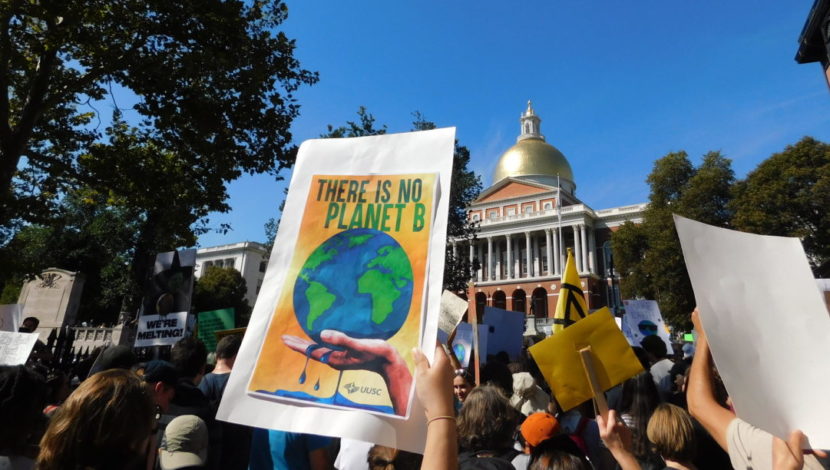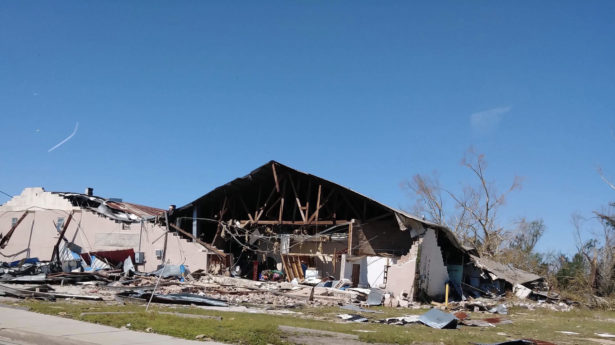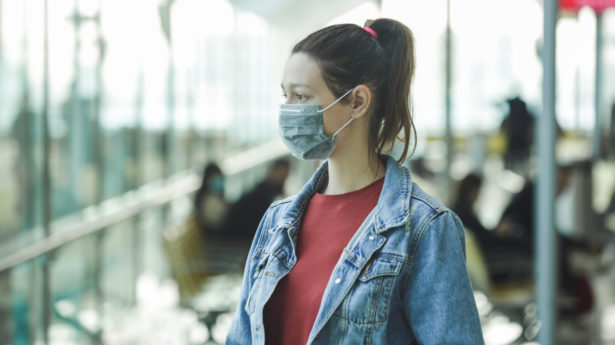The Unitarian Universalist Service Committee advances human rights through grassroots collaborations.
3 Ways to Promote Climate Justice and Equitable Relief in the Next Recovery Bill

By on April 6, 2020
The United States is undergoing a massive social and economic transformation. The question before our public authorities is not whether a profound change is taking place, but what kind of world our actions in this time of crisis will help create for the future.
The recent relief and stimulus package, the Coronavirus Aid, Relief, and Economic Security (CARES) Act, which the president signed into law on March 27, includes many positive features. Its passage shows that leaders across the political spectrum recognize the need for an unprecedented mobilization of public resources in this time of crisis. It also, however, leaves out many people entirely, and fails to address some of the most pressing needs of our communities, including those who are already on the frontlines of climate change.
As Congress prepares to work on another relief package after it returns from recess, our leaders have a chance to pass recovery legislation that truly serves all of our communities, including immigrants and First and Indigenous Peoples facing the climate crisis. This moment also offers an opportunity to build an economy that can sustain us long into the future, rather than reconstructing a system that was already leading us toward another existential threat to humanity.
In particular, Congress should use the next relief and stimulus bill—the fourth so far—to achieve the following:
Halt all evictions, foreclosures, and water and electricity shut-offs.
The COVID-19 pandemic is already creating catastrophic levels of unemployment, cutting off much-needed sources of income for working class families and people living in poverty. Especially in the midst of this crisis, no one should be denied access to such essential human rights as shelter and running water due to inability to pay. Congress must ensure there are no negative repercussions for nonpayment of rent, mortgages, and utility bills during the crisis, while reimbursing those who will lose income due to the payment freeze.
All too often, communities on the frontlines of climate change have seen disasters become a pretext for greed and a higher cost of living. In the case of communities in Florida impacted by Hurricane Michael and Indigenous communities experiencing climate forced displacement in Louisiana, UUSC has seen how people displaced from their homes and neighborhoods by storms come back to find that rents are higher and they can no longer afford to live there. Our partners at the Lowlander Center have warned us that the same thing will happen again to communities who lose their homes due to the COVID-19 crisis, if Congress does not act swiftly to ensure protections from evictions and foreclosures.
While many important decisions in these matters rest with municipal governments, Congress can take important action to provide a moratorium on tax foreclosures and utility shut-offs. They can do so by offering structured relief for local governments to cover the expense of lost revenue, on condition they offer these moratoria to residents. The federal government can also take steps to freeze collection of rent payments nationwide and reimburse property owners for lost income, prioritizing small and modest-income landlords who will be hardest hit.
In addition to helping in these ways to protect access to water, sanitation, and housing during the crisis, Congress should also work to expand internet access in rural areas. These actions will not only help secure access to human rights; they also provide people with the ability to follow public health guidelines in the age of social distancing. Without shelter, after all, we cannot shelter-in-place. Without clean running water, we cannot ensure basic hygiene. Without access to internet and electricity, we cannot remain connected to the outside world and receive much-needed health information during times of social isolation.
Deliver resources to the people who need them most.
Unfortunately, the stimulus payments in the CARES Act come in the form of a tax rebate that will be hard or impossible for many of the most impacted communities to access. Under the bill, individuals have to file taxes under a social security number in order to claim their stimulus check. The requirement means that immigrants who pay taxes with an individual taxpayer number are blocked from accessing the benefit. This affects many undocumented immigrants who pay taxes every year, as well as some authorized immigrants, as well as mixed-status families, many of whom work in home care and other industries that carry heightened risk of exposure to the virus.
Also, people without a permanent address, people with small incomes, people living in the informal and subsistence economy, and others who have not filed taxes in recent years, will face major hurdles to doing so. Yet these are precisely the community members who have the greatest need for relief. People living in rural areas with limited internet access, including many Indigenous communities, will also face challenges filing federal taxes online. As UUSC’s partners at the Lowlander Center note, tribal members who previously relied on the public library to get online are now unable to do so. Many of these communities also have higher rates of preexisting risk factors for COVID-19 and are already seeing grave consequences from the spread of the pandemic.
UUSC and our partners have seen before how immigration status and other arbitrary markers are used as a barrier to providing equitable relief in the wake of a disaster. We cannot allow our response to the COVID-19 crisis to become another instance of the same. Congress’ next stimulus bill offers a chance to right this wrong.
Ensure a just transition to a regenerative economy.
It is plain to almost everyone in Congress that this moment calls for a massive deployment of public resources. Some powerful interests, however, are trying to use these resources to shore up the extractive, fossil fuel-based economy we had going into this crisis. This approach will do nothing to address the pandemic, while only exacerbating the next global challenge of climate change, which is already leading to catastrophic impacts on many of our communities.
That is why, following the lead of frontline coalitions and organizations including the Climate Justice Alliance and the Indigenous Environmental Network, along with many others spanning the progressive movement, UUSC has endorsed the People’s Bailout. This movement includes five principles of a just response to the COVID-19 crisis, one of which calls on Congress to “make a down payment on a regenerative economy, while preventing future crises.”
Instead of contributing further to the climate crisis by bolstering an extractive economy, Congress should use this infusion of resources to ensure a just transition for workers in fossil fuel industries, create new jobs in clean, renewable energy, public transportation, and other infrastructure that will be needed to avert climate catastrophe, and fund lead remediation and other efforts that help our communities secure environmental justice.
In a time of global crisis, governments have a choice to make. They can either choose the path of greed and authoritarianism, using the crisis as a pretext to seize power, protect the interests of the rich and privileged, and clamp down on the rights of their people, as we are seeing increasingly around the globe and in this country. Or they can respond in ways that make all of us safer and build the kind of economy we will need anyway, if we are to survive and flourish in the future without more catastrophic global disruptions. The time to act is now.
Photo Credit: UUSC
***
About UUSC: Guided by the belief that all people have inherent worth and dignity, UUSC advances human rights globally by partnering with affected communities who are confronting injustice, mobilizing to challenge oppressive systems, and inspiring and sustaining spiritually grounded activism for justice. We invite you to join us in this journey toward realizing a better future!

